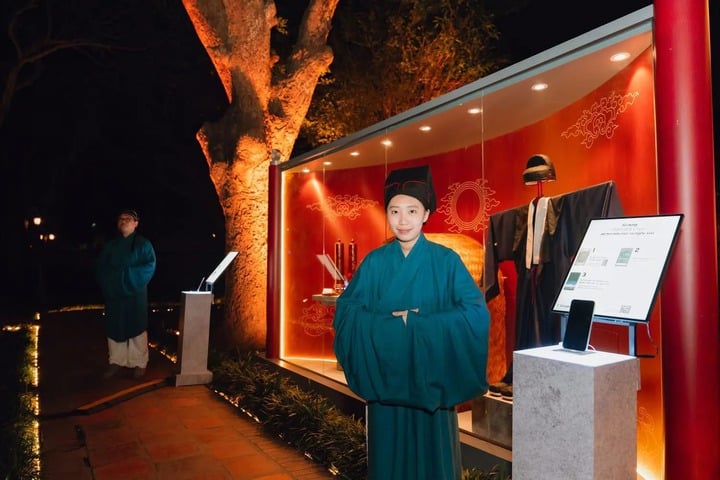
Journey to experience "One night of becoming a scholar" at the Temple of Literature.
Difficulties from capital to human resources
Vietnam currently has tens of thousands of small and medium-sized tourism businesses, a large workforce but limited financial resources. Mr. Pham Tien Dung, General Director of Goldentour Travel Company, Vice President of the UNESCO Hanoi Travel Club, said that investment costs are the biggest barrier: "The digital transformation process is expensive, while domestic companies can only use popular software, and do not have enough resources to build in-depth solutions, integrating multiple systems."
Since 2006, some businesses have tried to order their own accounting and customer management software, but when put into operation, they encountered technical errors and were not compatible with other systems. Up to now, most businesses still use basic software such as Misa or Microsoft Office, which is just "computer application", not reaching the true level of "digital transformation".
Along with the lack of capital is the lack of technology human resources. Mr. Tran Trung Hieu, Deputy Director of the Hanoi Department of Tourism, admitted that although localities have organized training and shared AI applications, most managers and tourism staff "still do not have in-depth expertise in digital transformation".
The rate of technical or IT specialist staff is still low, leading to the application of technology in a formal way, not optimizing investment efficiency.
In fact, many localities have made initial efforts. Hanoi, Da Nang, and Quang Ninh have all deployed electronic ticket systems, digital maps, and their own tourism data centers. However, according to the Vietnam Tourism Association, these platforms "develop on their own," lacking common technical standards and data interconnectivity. This not only causes waste but also forces tourists to install too many different applications when traveling to different destinations.
Vietnam still lacks a big data platform for the entire tourism industry - the core element for analyzing tourist behavior, forecasting the market or formulating policies. Businesses that want to understand customers also do not have the tools to exploit centralized information, making marketing and customer care activities not really effective.
The legal system is also not keeping up with reality. Many new services such as chatbots, virtual guides, smart tickets, augmented reality (AR/VR) or domestic OTA platforms do not have clear regulations or operating instructions. The lack of common standards causes experimental models to be "stuck" between idea and implementation.
According to Mr. Pham Van Thuy, Deputy Director of the Vietnam National Administration of Tourism, for digital transformation to truly take place, the tourism industry needs to "invest synchronously in a nationwide shared digital platform, capable of integrating data between the central, local and business levels."
This system must include data on destinations, accommodation, transportation, events, culture, and be updated in real time, serving simultaneously for management, policy planning and improving the tourist experience.
Completing the legal framework for digital tourism is an urgent requirement. In the upcoming revised Law on Tourism, experts propose adding regulations on digital asset management and protection, technical standards for smart tourism platforms, and a data sharing mechanism between management agencies and businesses.
Mr. Vu The Binh, Chairman of the Vietnam Tourism Association, emphasized: "4.0 technology must be applied to every step - from digitalizing destinations, e-tickets, interactive maps to AI, big data or VR/AR at tourist attractions. It is not just a trend, but a requirement for Vietnam to compete with other countries in the region."
Digital transformation must preserve cultural "soul"
At the Temple of Literature – Quoc Tu Giam, considered the "heart" of Vietnamese academic culture, technology is reviving traditional spaces with vibrant digital experiences.
Since the Covid-19 pandemic, the Center for Cultural and Scientific Activities of the Temple of Literature has deployed electronic tickets, QR codes to look up artifacts, digital databases and 3D mapping technology.
The program "Experience the Temple of Literature Night" takes visitors into a shimmering space of LED lights, where the Front Hall becomes a giant screen showing the story "The Quintessence of Taoism".
Recently, the program "One night of becoming a scholar" with a 5-part journey from "Enrollment - Entering the religion - Discussing religion - Exams - Respecting religion" has vividly recreated the ancient exam journey through 3D technology, augmented reality and language artificial intelligence.
Thanks to the application of technology, the Temple of Literature welcomes millions of visitors each year, creating a stable source of income for reinvestment and relic preservation. According to Ms. Nguyen Lien Huong, Deputy Director of the Center, "the issue is not only investing in technology but also changing the way of thinking about relic management, constantly innovating so that heritage always lives with the times."
Many major festivals in Hanoi such as Dong Da Mound, Hai Ba Trung Temple, and Truong Lam Communal House are also applying 3D mapping technology to tell historical stories in a semi-realistic format. There, folk music, 3D images, and modern lighting blend together to convey cultural messages in a close and attractive way.
However, researchers emphasize: digital transformation in culture and tourism must not trade identity for technology. Prof. Dr. Tu Thi Loan, former Acting Director of the Vietnam National Institute of Culture and Arts, said: "The goal of cultural digital transformation is not automation or commercialization, but to preserve and promote traditional values on a new technology platform. Bringing heritage to the digital space must go hand in hand with a change in conservation thinking, ensuring that the original values are not distorted."
According to Deputy Minister of Culture, Sports and Tourism Phan Tam, digital transformation in culture and tourism is a comprehensive change, in which people are the center. For digital transformation to be substantive, it is necessary to invest simultaneously in infrastructure, legal and digital human resources. Tourism training schools should soon incorporate digital skills, data management and technology application into the main curriculum; at the same time, expand short-term training courses for officials, businesses and communities at destinations.
Experts have also proposed the establishment of a fund to support digital transformation in tourism, aiming to help small and medium-sized enterprises access preferential loans, while encouraging the development of domestic OTA platforms, digital promotion campaigns and national-scale online tourism trading floors./.
Source: https://mst.gov.vn/du-lich-viet-nam-tren-hanh-trinh-chuyen-doi-so-ket-noi-du-lieu-lan-toa-van-hoa-197251113084930167.htm






![[Photo] Prime Minister Pham Minh Chinh meets with representatives of outstanding teachers](https://vphoto.vietnam.vn/thumb/1200x675/vietnam/resource/IMAGE/2025/11/15/1763215934276_dsc-0578-jpg.webp)
![[Photo] General Secretary To Lam receives Vice President of Luxshare-ICT Group (China)](https://vphoto.vietnam.vn/thumb/1200x675/vietnam/resource/IMAGE/2025/11/15/1763211137119_a1-bnd-7809-8939-jpg.webp)



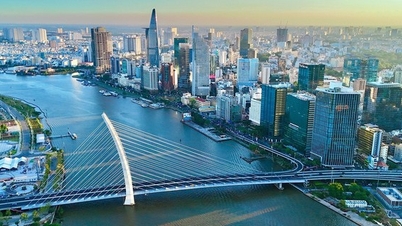
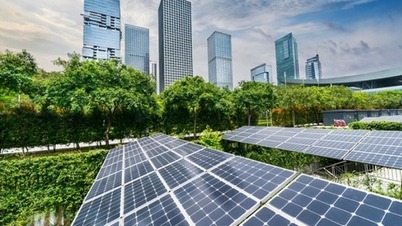
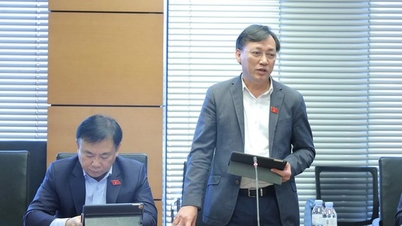




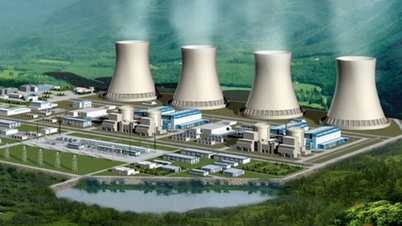


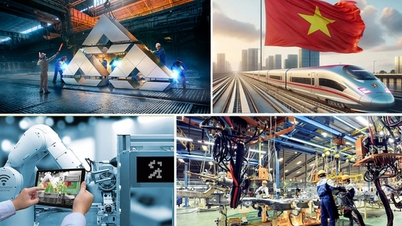











































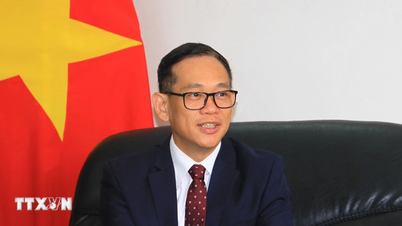

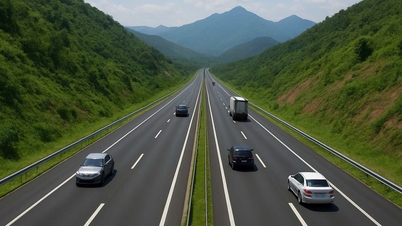








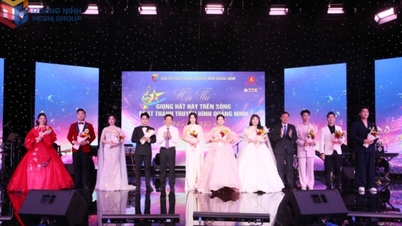

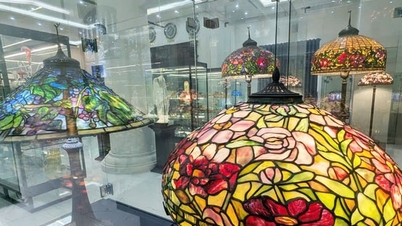
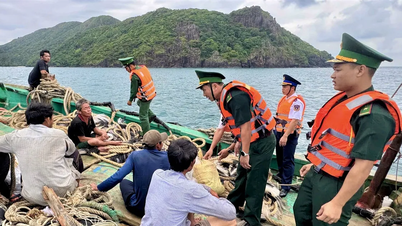













Comment (0)